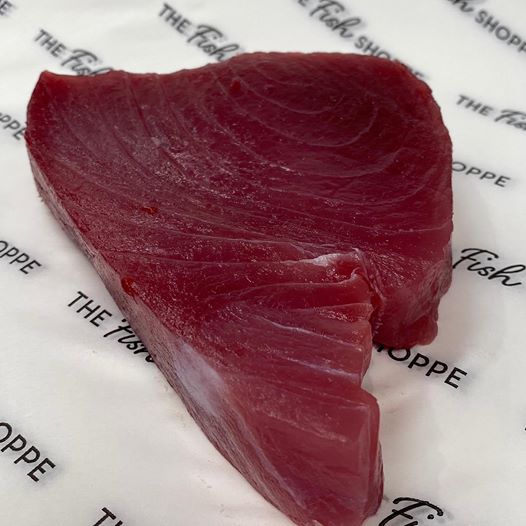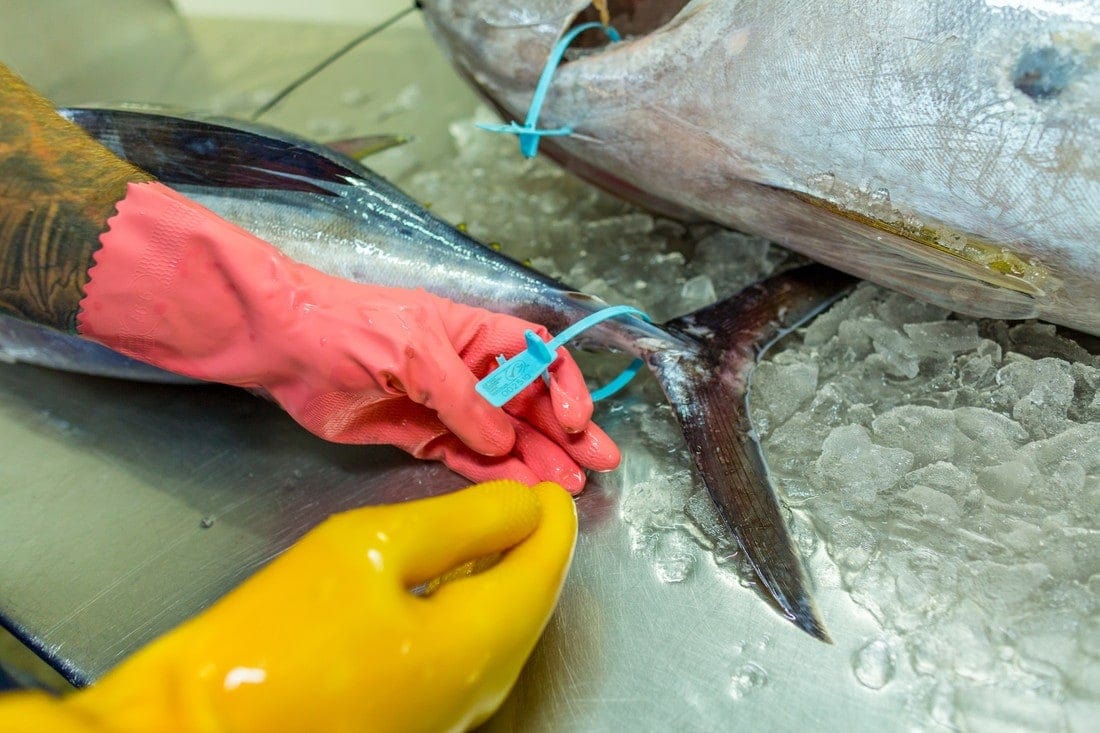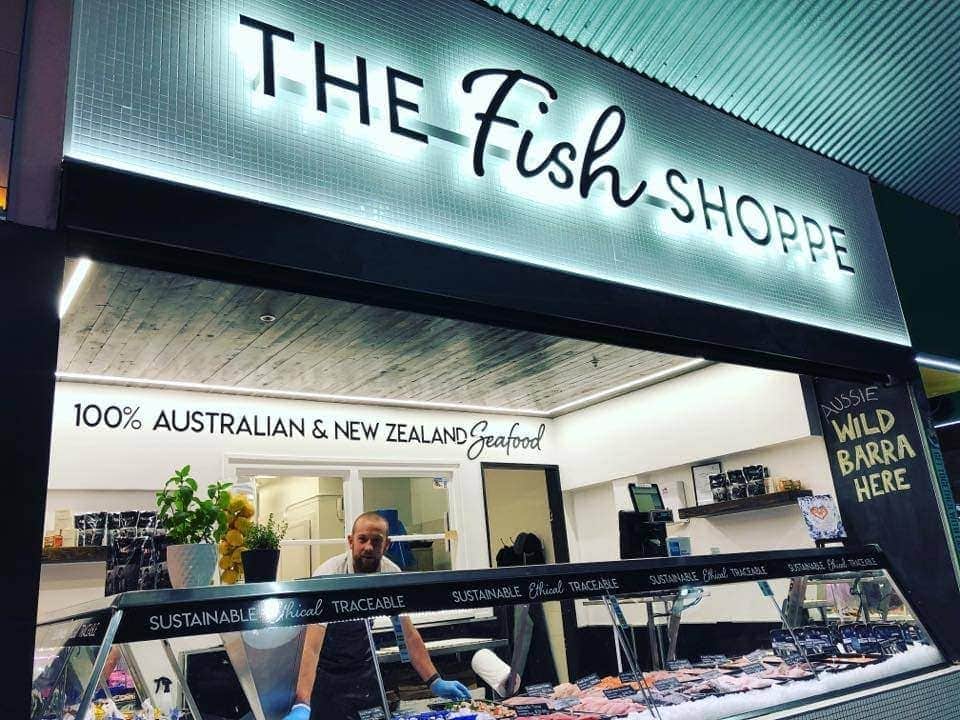Eastern Tuna and Billfish Fishery on track to be MSC certified
The Eastern Tuna and Billfish Fishery is on track to be certified as sustainable by the Marine Stewardship Council in late August, creating excitement among Tuna Australia members.
The Public Comment Draft Report was published on 27 May 2020, representing another significant milestone on the journey to receive MSC certification.
“Gaining MSC certification validates the sustainability of the ETBF fishery and proves that our food producers are stewards of ocean sustainability,” said David Ellis, CEO of Tuna Australia.
“The certification will provide Tuna Australia members with a number of benefits, including access to new markets and premium prices.”
‘Best managed in the world’

MSC-certified yellowfin tuna. Photo by The Fish Shoppe.
The Eastern Tuna and Billfish Fishery (ETBF) extends down the east coast of Australia. There are 34 member longline boats active in the fishery, landing around 4,000 tons of quota species annually.
The fishery is considered among the best managed in the world, says Phil Ravanello, Tuna Australia Program Manager.
“The fishery operates under a strict quota system set by the government. Each operator has a share of the total allowable catch based on how much quota they own, or lease in from other fishers.”
The Australian Fisheries Management Authority, who manages the fishery, is recognised as a world leader in fisheries management.
“Our priority is ensuring all Australian Commonwealth fisheries are managed in an ecologically sustainable way,” said Wez Norris, AFMA chief executive officer.
“We are really pleased that AFMA’s scientific fishery assessment and management processes are supporting Tuna Australia in its progress towards MSC certification.”
The MSC journey
Gaining MSC certification for Yellowfin Tuna, Bigeye Tuna, Albacore and Broadbill Swordfish was the next step in the industry’s journey to demonstrate its sustainability.
As part of the certification process, starting in mid 2019, a third-party audit company conducted a rigorous assessment of the ETBF fishery.
“They assessed our catch history, impacts on secondary species and environmental performance, and the volumes and types of bait used, ensuring they are sourced from sustainable fisheries,” Phil said.
The draft report provides an opportunity for the public to review and comment on the ETBF assessment. Comments received to date suggest there is strong support for the ETBF to be certified under the MSC eco label.
“This feeds into the final decision to certify the fishery, which is on track to achieve MSC certification in late August 2020.”
‘An added distinction’

Walker Seafoods Australia. Photo by MSC.
The project to pursue MSC certification has been funded by the Australian Government through the “Our Marine Parks” grant scheme, supporting Commonwealth efforts to maintain a sustainable seafood industry.
Sustainability is becoming a stronger factor in consumer purchase decisions, both here and abroad, says Cathal Farrell, owner of UpScale Seafoods in Coffs Harbour.
While Australia leads the world in fisheries management, the MSC label is recognized internationally and will add value to our product.
“Before, having the MSC label would get a premium price. Now, the feedback from tuna canneries is that having a sustainability accreditation is almost a requirement. And MSC is the most recognized sustainability certification in the world.”
Cathal, whose business targets foodservice and retail customers, sees the MSC certification as an opportunity to set his business apart.
“The blue fish tick gives an added distinction that will add value to our product and our business in the long term,” he said.
“We’ve discussed the upcoming MSC certification with our customers in the US and they see it as a positive step. We’ll be encouraging local customers to get on board with the MSC process.”
Growing excitement
For businesses to label their products with the MSC label—also known as the blue fish tick—they need to obtain chain of custody (CoC) certification, allowing fish to be traced from the boat to the plate.
Lisa Jacobsen of Prime Fish based on the Gold Coast is one of nine Tuna Australia members pursuing CoC certification for their fish landings.
“Increasingly, people are looking to know where their seafood has come from and that it’s been fished sustainably. Through the CoC process all of our products will tick those boxes,” she said.
We’re excited to be part of achieving MSC certification.
“To be able to label our products in domestic and international markets as sustainable with the blue tick of approval will definitely help with the promotion of our fishery.”
‘More credibility’

The Fish Shoppe in Melbourne. Photo by The Fish Shoppe.
Josh Pearce, owner of The Fish Shoppe in Melbourne, can attest to the benefits of selling MSC-labelled products.
The business is the first independent retailer in Australia to gain MSC CoC certification.
“The MSC blue fish tick has given us more credibility in the market,” he said.
Josh says that people love the tuna products he sells from Mooloolaba-based Walker Seafoods, which is already MSC certified.
“Our customers have said consistently that it is the best tuna that they have ever eaten. Even those that don’t buy it comment that it is the best-looking tuna in the market,” he said.
“Customers are coming back specifically for it and are recommending it to others.”